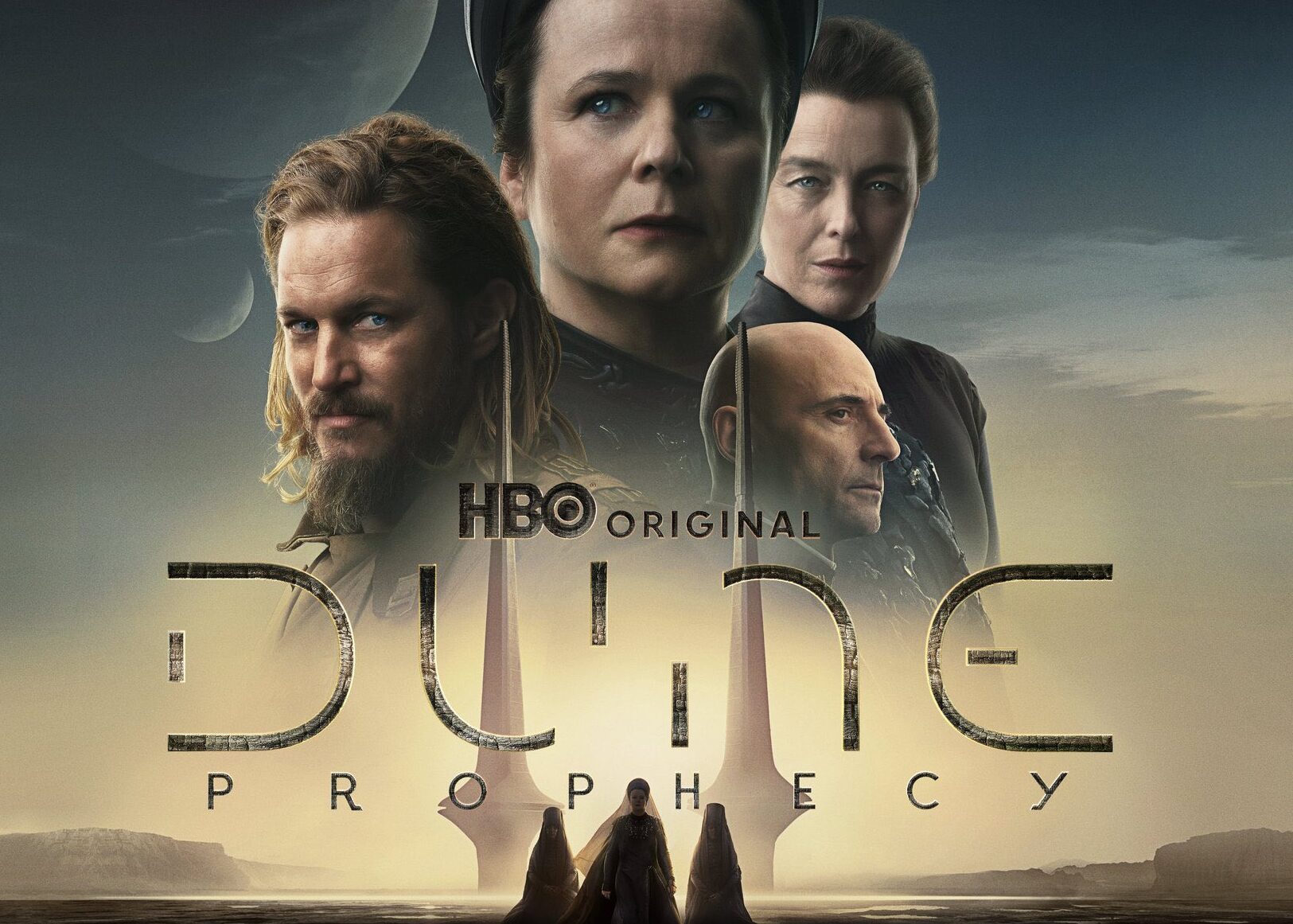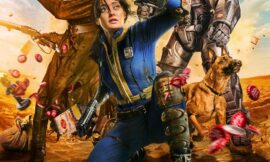The Prophecy of Dune: A Deep Dive into the Future of Arrakis
Frank Herbert’s Dune, first published in 1965, is a towering work in the science fiction genre, revered for its intricate world-building, its complex political structures, and its deep philosophical and ecological themes. One of the central elements in the Dune series is the concept of prophecy—particularly the notion of a prophesied messiah who will bring change to the desert planet of Arrakis. The “Prophecy of Dune” is not just a traditional foretold event but a multi-faceted, evolving element that guides the narrative and plays a crucial role in the development of the main character, Paul Atreides, as well as the larger socio-political landscape of the universe Herbert created.
The Context of Prophecy in Dune
In the universe of Dune, prophecies are not merely spiritual or religious predictions. They are deeply intertwined with politics, power, and the manipulation of belief. The story’s intricate religious aspects are framed in the context of an ancient and well-established galactic society that relies on myth and religion to control populations. The Prophecy of Dune, particularly concerning the arrival of a messiah figure, is a product of this system. It is at once a political tool and a deeply spiritual idea, reflecting the power of religion to influence both individuals and entire civilizations.
The planet Arrakis, a harsh desert world, is the key to the Empire’s economy. It is the only source of the spice melange, a drug that is essential for space travel, longevity, and heightened mental abilities. Because of the immense value of spice, Arrakis becomes the focal point of political, religious, and economic struggles. The prophecy of a messiah, a figure known as the Kwisatz Haderach, becomes central to the people of Arrakis, especially to the Fremen, the desert-dwelling inhabitants of the planet.
The Kwisatz Haderach and the Role of Religion
The most important prophecy in Dune is the idea of the Kwisatz Haderach, a superhuman figure who is said to be able to bridge space and time, to see both the past and the future, and to hold the key to ultimate power. This figure is believed to be the ultimate result of a breeding program conducted by the Bene Gesserit, a secretive and powerful sisterhood. The Bene Gesserit, who manipulate political events and control powerful individuals, have spent generations attempting to produce the Kwisatz Haderach through their controlled breeding program.
The Fremen of Arrakis, however, also have their own prophecy, which tells of a messiah figure who will lead them to freedom from their harsh existence under the rule of off-world aristocracies. When Paul Atreides, the heir to House Atreides, and his family are exiled to Arrakis, the Fremen come to believe that he is the fulfillment of their prophecy. Paul’s journey in Dune is marked by his struggle to understand whether he is truly the messiah they believe him to be, or whether his rise to power is the result of complex, manipulative forces beyond his control.
Paul’s Destiny and the Burden of Prophecy
At the heart of the Dune prophecy is Paul Atreides, the protagonist who is caught between his role as a political leader, his emergence as a religious figure, and the prophecy that has shaped the Fremen’s beliefs about their savior. Early in the novel, Paul’s mother, Lady Jessica, a member of the Bene Gesserit, has disobeyed the orders of her sisterhood by bearing a son instead of a daughter. This son, Paul, becomes the subject of a long-standing plan to create the Kwisatz Haderach. However, through a series of unforeseen events, Paul’s life takes a turn that leads him to become a messianic figure to the Fremen.
As Paul rises to power among the Fremen, he begins to experience visions of the future, a central element of his journey. These visions reveal multiple paths, and Paul must navigate the consequences of his rise to power. The prophecy of the Kwisatz Haderach seems to be coming true, but Paul is troubled by what this means for the future of humanity. His visions show the potential for a religious jihad that could sweep across the universe, causing untold death and destruction. Paul’s internal conflict deepens as he grapples with the implications of fulfilling the prophecy. His rise is not a straightforward path to salvation, but one fraught with difficult choices and sacrifices.
Paul’s struggle with prophecy is not just personal but philosophical. He is tormented by the fact that he may be a pawn in a larger scheme, manipulated by the Bene Gesserit and other forces for their own ends. The Prophecy of Dune, rather than being a simple hope for a better future, becomes a complex and often burdensome idea. Paul’s role as the Kwisatz Haderach is not a glorified destiny, but rather one that forces him to confront the terrifying consequences of power, control, and religious zealotry.
The Bene Gesserit and Their Manipulations
While Paul struggles with his role as the prophesied messiah, the Bene Gesserit, the sisterhood that played a key role in shaping the prophecy, have their own agenda. The Bene Gesserit’s breeding program was designed to create the Kwisatz Haderach, but they had hoped to control the individual who would emerge as the messiah. However, the emergence of Paul as the Kwisatz Haderach is unanticipated, and it represents a shift in power. The Bene Gesserit had expected the Kwisatz Haderach to be a controlled figure they could use for their own ends, but Paul is a wild card, and this shift in the fulfillment of prophecy threatens the Bene Gesserit’s plans.
In Dune, prophecy is both a tool of control and a destabilizing force. The Bene Gesserit’s careful manipulation of religion, politics, and genetics is meant to create a controlled environment where prophecy can be harnessed to maintain their influence. However, the reality of the prophecy’s fulfillment—through Paul’s unexpected rise to power—reveals the fragility of their designs. The Fremen, too, have played a role in the shaping of the prophecy, although they are unaware of the Bene Gesserit’s influence. In the end, it is Paul who breaks free of the chains of prophecy, even as he becomes the figure the Fremen believe will lead them to freedom.
The Future of the Prophecy
As the Dune saga progresses, the idea of prophecy continues to play a central role. The Prophecy of Dune becomes more complicated with each subsequent book, as Paul’s descendants struggle with the legacy he has left behind. The Dune series as a whole examines the consequences of blind faith in prophecies, and the ways in which these beliefs can shape the fate of entire civilizations. Paul’s son, Leto II, would go on to further complicate the legacy of the prophecy, using his own abilities and vision to reshape the universe in ways that echo Paul’s struggles.
In the end, the Prophecy of Dune is about more than just the emergence of a single messianic figure. It is about the ways in which belief, power, and politics intersect, and the complex consequences of following a predestined path. Herbert’s exploration of prophecy is a cautionary tale about the dangers of unquestioning belief and the manipulation of religion for political gain. Through Paul Atreides and his family, the Dune series provides a nuanced examination of the tension between fate and free will, and the complex interplay between individual agency and the larger forces that shape history.
Conclusion
The Prophecy of Dune is an intricate and multifaceted element of Frank Herbert’s universe. It is not merely a prediction of the future, but a powerful tool of control, belief, and manipulation. Through the character of Paul Atreides, Herbert explores the burdens of prophecy and the consequences of following a path that has been predetermined by others. Ultimately, the Prophecy of Dune serves as a reflection on the nature of power, belief, and the complexities of destiny in shaping the future of humanity. As Paul’s story unfolds, the question of whether prophecy is a force for good or evil remains central to the themes of the Dune saga, providing a rich and thought-provoking exploration of human nature and the future of civilization.



